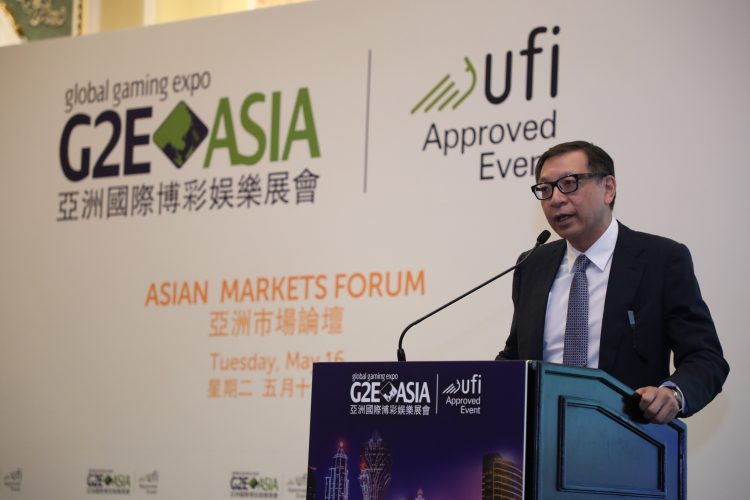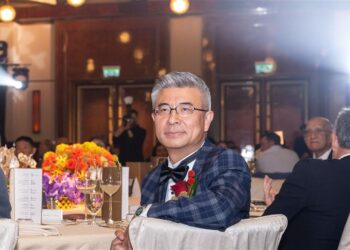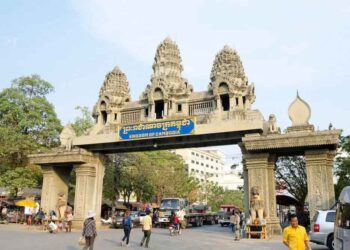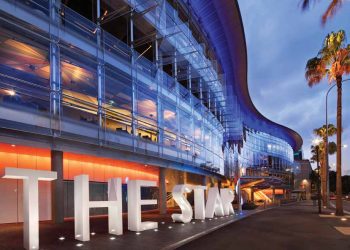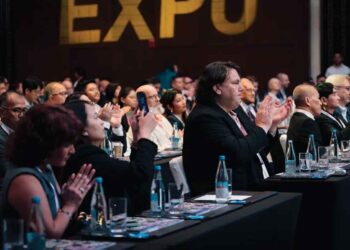By Andrew W Scott
Galaxy Entertainment Group Vice Chairman Francis Lui says Macau must focus on innovation if it is flourish, pointing to the next generation of players as key to the city’s long-term success.
In a wide-ranging closed door exclusive interview held on Day 1 of G2E Asia 2017, Mr Lui provided his insights into the Macau gaming industry’s recent revival, pointing out key strengths and weaknesses he believes will determine how the Asian gaming hub will fare against growing regional competition in the coming years.
On Millennials and the changing gaming product.
“I believe our future customers are the Millennials,” Mr Lui said. “Our customers have been Generation X and Generation Y, but the Millennials are catching up. These guys are born in the ‘90s and the turn of century and they will be our customers in five years’ time. They embrace gadgets and technology, they think differently and they enjoy lifestyle over luxury. Nobody has the key to unlock the Millennials yet, but we are doing our best to find the right formula. I suspect it might have something to do with a different type of game but we don’t know yet.
“So we want to start a conversation with the DICJ about what new regulations might get us ahead of the game to have the right product for these future customers. We have to start now because regulations take a lot of time to draft and approve. We should have a more active dialog.”
On the Macau gaming recovery.
“Overall you have to look at the mainland economy because 70% of our market still comes from there,” Mr Lui said. “There has been economic growth in China and if real estate in China is doing well then confidence is up and this has a positive impact on Macau.
“But the Central government will not support gaming alone. They do not want to see just the gaming revenue shoot up. They have made it clear to us that there is going to be diversification and non-gaming has to do better as well.”
On tighter regulation of the Macau gaming industry
Mr Lui acknowledged that regulations will continue to evolve. “I think we have to embrace it,” he said. “This is a matter of getting used to the regulations. Take a look at all the other markets in the world — they are all moving in that direction. If we want to do the right thing for the community, then more regulations, more transparency, we are all for it.
“If you don’t want to embrace the change, you shouldn’t be in Macau. The government wants a healthier, more wholesome gaming industry. We are embracing the change.”
On Galaxy’s chances to secure an IR in Japan.
Mr Lui’s mood on the subject of gaming in Japan was optimistic. He said, “Japan has been discussing whether they should or should not have a gaming industry for a long, long time, but it was only approved last year. I think the Abe administration made that decision because they felt the energy and stimulation created by IRs more than outweighed the challenges of responsible gaming and customer behaviour.
“Japan is not going to be the first one to be concerned about these challenges. The more regulated countries are keeping these problems to the minimum. At Galaxy we have one of the best in class menus to make sure we handle that well.
“Although Galaxy has one of the strongest balance sheets in the industry, I don’t think financials are the only factor in winning a license, many other factors such as responsible gaming are needed to win the heart of the Japanese government.”
Mr Lui didn’t commit to any investment level for an IR in Japan but added, “we are not afraid to invest once we know what the details are, towards the end of the year.”
When asked whether Japanese governments at various levels understood the issues surrounding integrated resorts with gaming, Mr Lui replied, “I think it is a process. It takes time for them to understand what an IR is. We started a dialog three or four years ago, and continually maintain a dialog to help them understand what drives the business. I think they probably understand that for an IR to be successful, gaming is a major part of it, because non-gaming elements will take time to mature. In the meantime they probably need to have a casino there to make sure there is enough return for the investor to continue to invest.”
When asked about political tensions between China and Macau, Mr Lui said, “We are talking about commercial investment here, we do not think that is an issue for us, in fact we think we understand the Japanese culture more than anyone else.”






